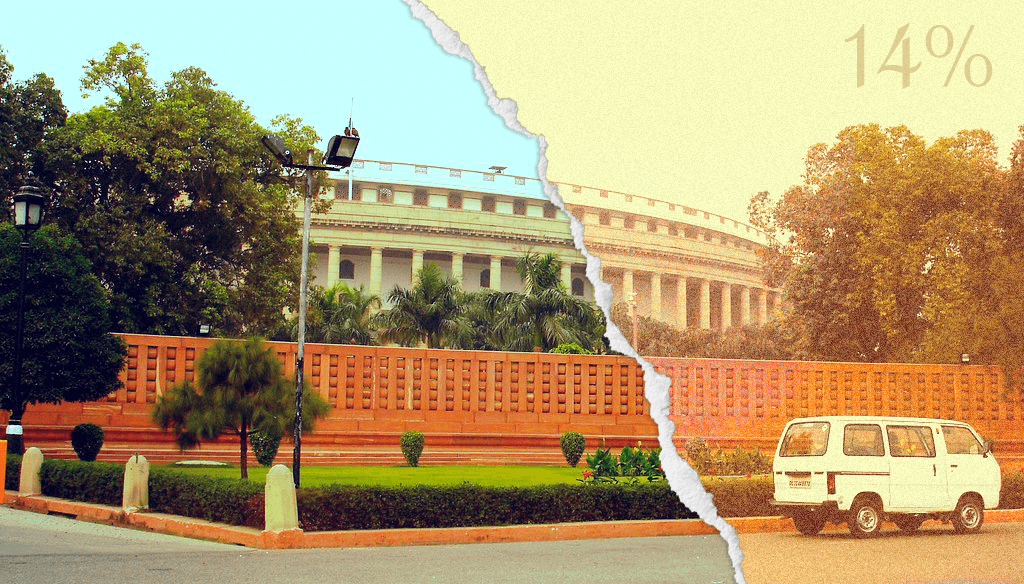Women make up nearly half the population of India, but it seems like they underrepresented in legislative bodies.
While the statistics are improving, we still have a long way to go towards equal representation. At this rate, we might reach 50% by the year 2033.
| Lok Sabha | Year | Female | Female % | Non Binary | Male | Total |
|---|---|---|---|---|---|---|
| 1st | 1952 | 24 | 4.43% | 0 | 518 | 542 |
| 2nd | 1957 | 24 | 4.47% | 0 | 513 | 537 |
| 3rd | 1962 | 37 | 6.86% | 0 | 502 | 539 |
| 4th | 1967 | 33 | 5.97% | 0 | 520 | 553 |
| 5th | 1971 | 28 | 5.07% | 0 | 524 | 552 |
| 6th | 1977 | 21 | 3.77% | 0 | 536 | 557 |
| 7th | 1980 | 32 | 5.66% | 0 | 533 | 565 |
| 8th | 1984 | 45 | 7.95% | 0 | 521 | 566 |
| 9th | 1989 | 28 | 5.25% | 0 | 505 | 533 |
| 10th | 1991 | 42 | 7.57% | 0 | 513 | 555 |
| 11th | 1996 | 41 | 7.44% | 0 | 510 | 551 |
| 12th | 1998 | 44 | 8.06% | 0 | 502 | 546 |
| 13th | 1999 | 52 | 9.15% | 0 | 516 | 568 |
| 14th | 2004 | 52 | 8.87% | 0 | 534 | 586 |
| 15th | 2009 | 64 | 11.43% | 0 | 496 | 560 |
| 16th | 2014 | 68 | 11.87% | 0 | 505 | 573 |
| 17th | 2019 | 78 | 14.47% | 0 | 461 | 539 |
Despite seat reservations and quotas, these numbers have only creeped up little in the last few decades. In most cases, the seats reserved for women are contested by female family members of existing (male) politicians. Only seats where more women are elected without any family ties are seats reserved for SC/ST.
On an average, women members of Lok Sabha are more educated and younger as compared to their male counterparts. On the other hand, they are less likely to be present in sessions, raise questions, participate in debates, or propose private member bills.
Women legislators have different effects on state expenditure as compared to their male counterparts. Women elected from SC/ST seats also have additional differences as compared to General Category seat women legislators. As per a report by a Professor of Economics at the University of Kent “Scheduled caste and scheduled tribe women legislators favour capital investments, especially on irrigation and low levels of education, and increase revenue expenditure on water supply. They also favour “women-friendly” laws, such as amendments to the Hindu Succession Act, proposed to give women the same inheritance rights as men. On the other hand, general women legislators do not have any impact on “women-friendly” laws.”
There could be more factors such as the leanings of their political party on specific topics, legislators are forbidden from voting against the majority of their party. India has an anti-defection law which prohibits a member of parliament from voting against their political party’s ‘whip’. It is curious to note that the party ‘command’ can be a non-elected member and doesn’t have to meet any criteras to be appointed as such.
